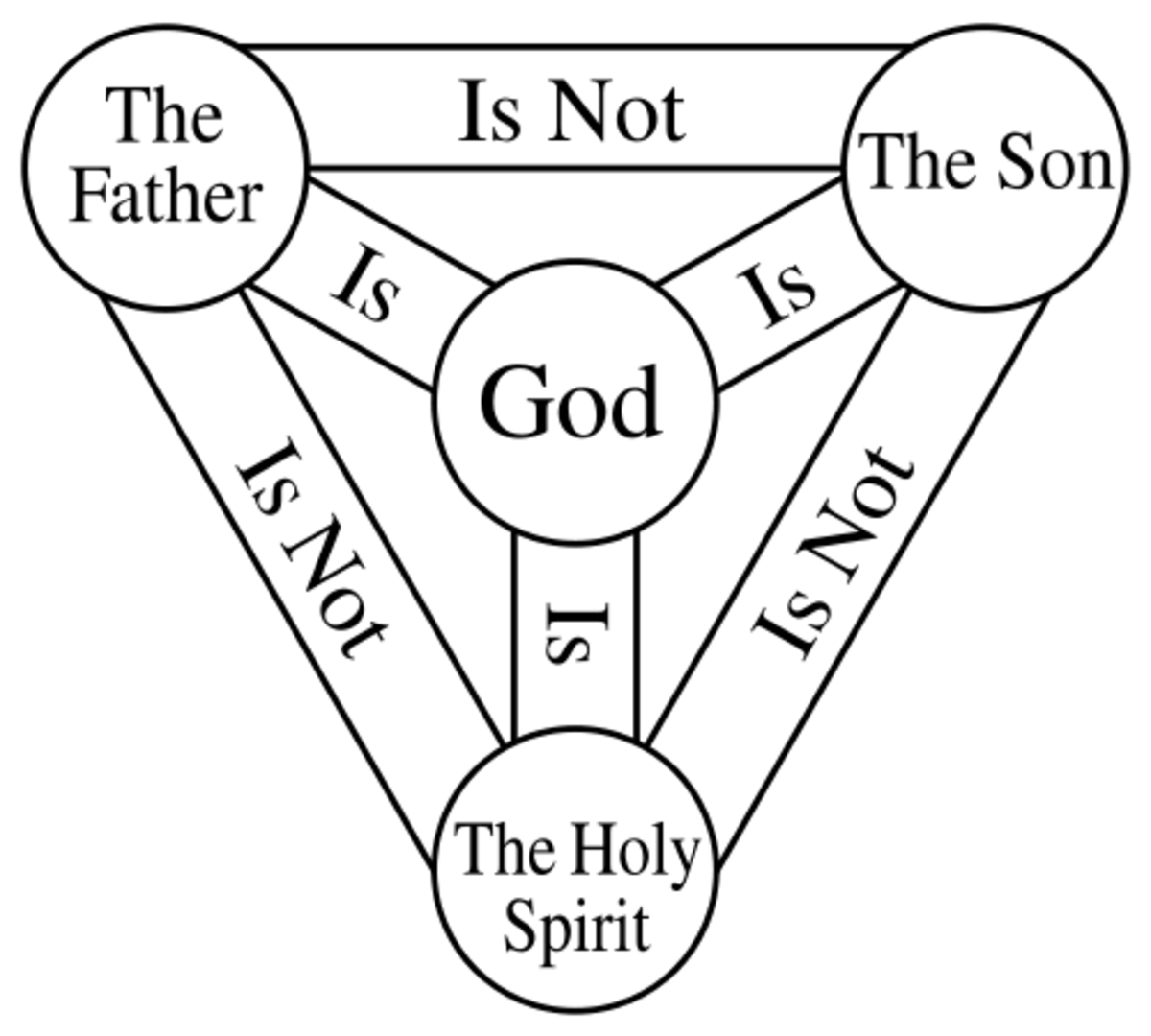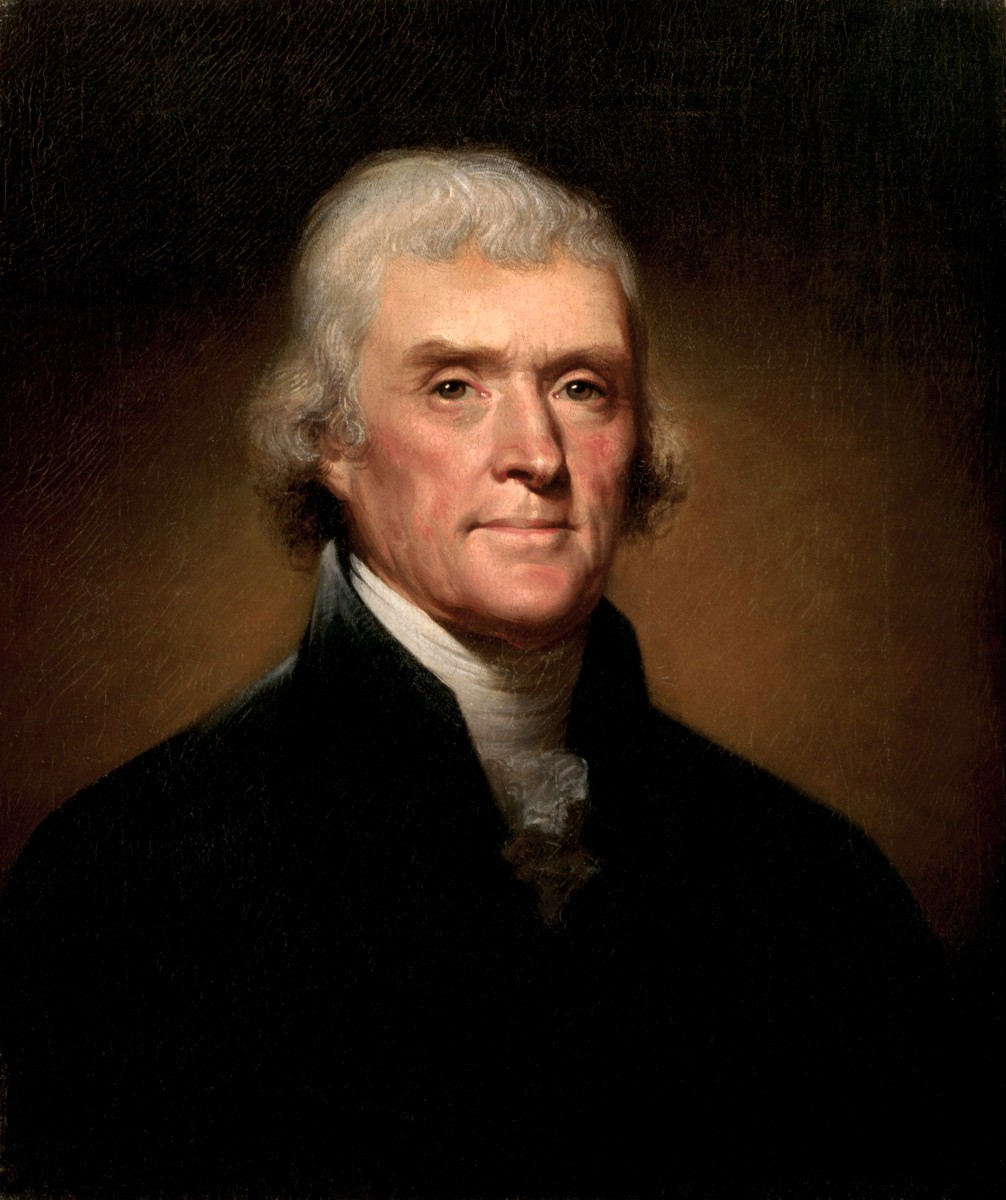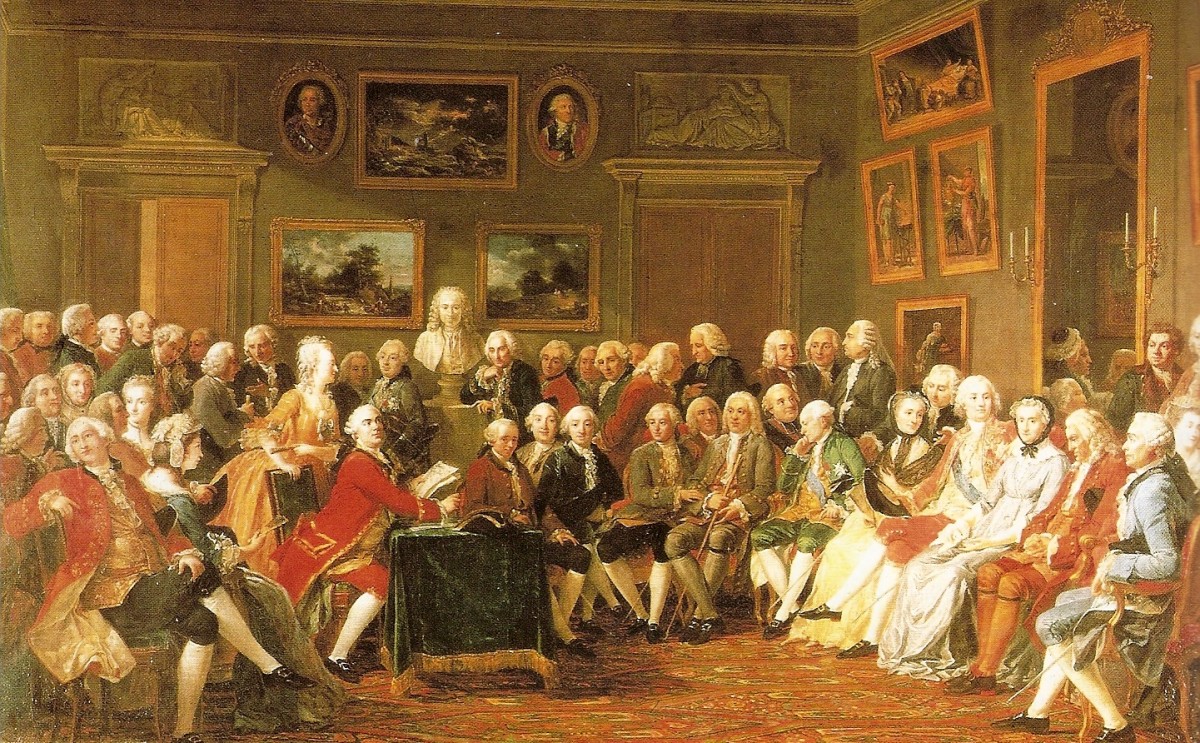Ben Franklin and Thomas Jefferson's Religion: God is a concept
Thomas Jefferson's God
Ben Franklin and Thomas Jefferson –Their Religious Faith
(The following is a dialogue between a high school student and his history teacher in school’s cafeteria during lunch break.) By Michael Mikio Nakade, M.A.
Student: I learned something about the Enlightenment Philosophy in World Civilization class last year. It was interesting because I could see that modern scientific methods were challenging the traditional Christian understanding of the universe. The Enlightenment thinkers sounded very modern just like us.
Teacher: I’m glad that you had the opportunity to study that particular time in our history. Yes, 17th century people like Sir Isaac Newton and Robert Boyle sought general explanations and searched for theories that could be verified by scientific experiments. By the late 18th century, those who were called the Philosophes in France were rejecting Church’s claimed authority. There was a definite shift in people’s consciousness.
Student: Were those Philosophes atheists?
Teacher: Well, some were. A man named Voltaire openly attacked the credibility of Christian theology and said something to the effect that God is a comedian playing to an audience too afraid to laugh. But other philosophes were called Deists and insisted on affirming the existence of God as a universal principle.
Student: Voltaire was a good friend with America’s Benjamin Franklin, right? Did Benjamin Franklin become a Philosophe?
Teacher: Yes, he and one more famous American. The man who drafted the Declaration of Independence.
Student: That’s Thomas Jefferson. I had no idea that he was into the Enlightenment Movement. I thought he was a politician.
Teacher: Well, Jefferson was the third president of the United States, but he was far more than just a politician. He was a scientist, plantation owner, diplomat to France, and the thinker. He was a Renaissance man.
Student: Was Jefferson like Voltaire when it came to religion?
Teacher: No. He was a Deist. He accepted God but refused to see “his” God being tied to Jesus.
Student: So, he wasn’t a Christian?
Teacher: No. He never thought of Jesus being divine.
Student: Interesting. Will you tell me more about Jefferson’s God?
Teacher: Okay. First of all, God of Deists is not the same God that was revealed in the Scripture. For Jefferson and other Deists, miracles and revelations were out. They believed that our knowledge of God came from our observation of nature. They also believed that human beings were smart enough to see God’s general operations in the universe. Newton and Boyle’s discoveries were really exciting to them.
Student: What about a church? Did Jefferson attend the church in his neighborhood? It seems that all American politicians have to look like seriously religious, if they want to get elected.
Teacher: Yeah, it’s true that presidential candidates often act religious and pious during the election campaign, but privately, many of our presidents weren’t that religious. Jefferson grew up as an Episcopal but was not a member of any one church as an adult. His religious beliefs were very consistent with that of Deists.
Student: If Deists were into being scientific and rejecting all miracles, they must not worry about their going to heaven or hell, huh?
Teacher: No, Deists don’t worry about something like heaven or hell since neither concepts can be established through scientific method of inquiry.
Student: Then, do they have a reason to be good during this lifetime?
Teacher: Oh gee! You’re saying that people become moral and ethical only because they want to go to heaven. That’s not always the case, you know. Deists want to be good and virtuous because they believe that knowledge of the universe leads them to virtue. In other words, the law of nature points to our natural desire to be happy in life. Happy life cannot happen unless humans become virtuous.
Student: Sorry. I didn’t mean to say that all religious people are religious only because they wanted to go to heaven. But, I have a hard time imagining that Jefferson and Deists could be considered “religious” with the view that they had.
Teacher: You’re right. They were not at all ‘religious’ in the ordinary sense, and that made the Enlightenment Movement in America so interesting. First of all, those Enlightenment thinkers were very educated in science. They believed something to be true only if they were satisfied with given scientific explanations. Most ordinary people in 18th century America weren’t like that. Most people believed in the authority of the scripture and accepted many miracles reported in the Bible without begging for scientific explanations. Jefferson had the nerve to reject the Scriptural authority (and the miracles reported in the Scripture). It’s well known that Jefferson used his scissors to remove all miracle stories from his Bible.
Student: How about Ben Franklin? How did he deal with religions of his time?
Teacher: Ben Franklin came from a Puritan tradition of Boston, Massachusetts. He didn’t like Puritan’s fatalism and pessimistic view on human nature. For example, Puritans would interpret natural disasters as God’s anger toward humanity for committing sinful deeds. Ben Franklin thought otherwise. Do you remember his kite experiment? Lots of people thought that the lightening and thunder were God’s angry expression. But, Ben Franklin flew a kite and discovered that the lightening was actually electricity. In other words, he trusted his own scientific method of inquiry 100% and rejected the preachers’ claims that God revealed himself through disasters and bad physical events in the world.
Student: I never thought of Ben Franklin’s kite experiment having any connection with the Enlightenment Movement. Are there any other events in American history that shows the Enlightenment idea?
Teacher: Yes, Jefferson wrote such historic documents as the Declaration of Independence and The Virginia Declaration of Religious Freedom. These 18th century documents indicate his Deist philosophy.
Student: Really? How so?
Teacher: In the Declaration of Independence, he wrote that “we are endowed by the Creator with the unalienable rights: 1) life, 2) liberty, and 3) the pursuit of happiness.” The last one, the pursuit of happiness wasn’t the 18th century Christian idea. Rather, it was the Deist belief. Jefferson believed that the law of the universe was such that God gave each person the right to be happy in this life.
Student: How about the Virginia Declaration of Religious Freedom? How does religious freedom relate to the Enlightenment idea?
Teacher: When Jefferson
was writing the Declaration of Religious Freedom in Virginia in 1779, people
believed that people of different religions wouldn’t be able to live together
peacefully in the same community. Do you remember Wars of Religion in Europe? That’s one of the major
reasons for his rejection of traditional Protestant faith. More than anything, he wanted people to ‘chill’
when it came to the issue of religion.
The most practical way is to guarantee Religious Freedom so that each
individual can exercise his or her freedom to choose his or her religion. I told you that Deist’s God is
like a universal principle. This God
doesn’t get angry or jealous or anything like that. It’s a laid-back God because this God is a
concept, and Jefferson preferred his God like this.
Student: Now I can see the connection between America’s Freedom of Religion and Jefferson’s Enlightenment philosophy. It’s pretty cool. Thank you, Mr. History teacher, for telling me about Ben and Tom’s religious faith.
Teacher: You’re very welcome. Glad that you’re interested in history.






